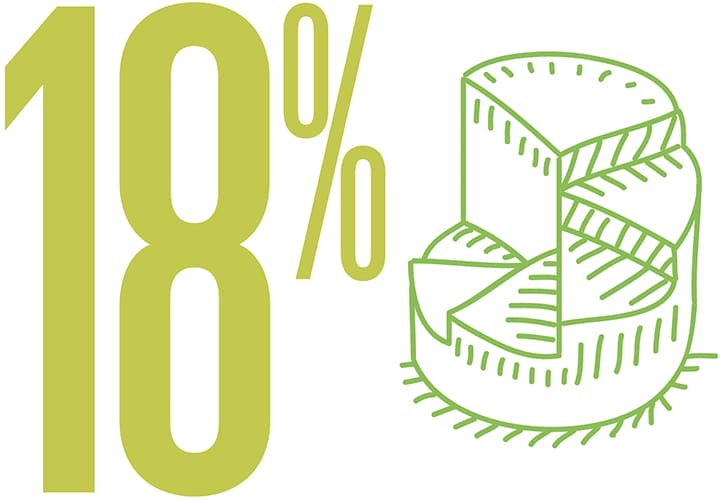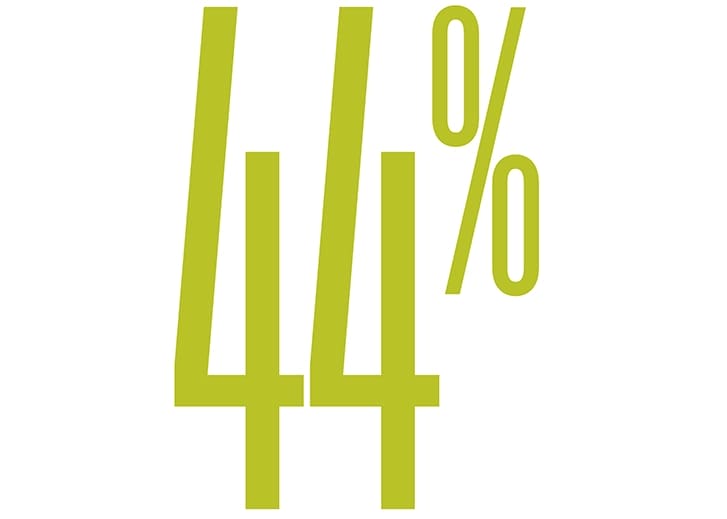DATA INTERPRETED
Number of the 19 major bank holding companies that failed a stress test conducted by the federal government following the onset of the 2008 financial crisis
Since that time, stress tests have become a regular feature of regulatory oversight for the banking system. In a new paper, Wharton finance professor Richard Herring and Til Schuermann G91, of consulting firm Oliver Wyman, discuss making these tests more effective in the modern era, such as by considering non-financial risks like cyber threats, accounting for second-round effects of shocks, and broadening the scope of tests beyond just banks.
THOUGHT
“Let us begin with the premise that in a democracy, we would like to have voting time be roughly equal across all populations.”
In light of recent primary elections marked by long wait times, Gerard Cachon — Wharton vice dean of strategic initiatives and professor of marketing and operations, information, and decisions — discusses possible reasons and remedies, drawing on two research papers he co-authored with Dawson Kaaua WG13 GRW20. Among the proposed solutions: implementing laws regarding voting-resource allocations and establishing independent commissions to monitor wait times.
DATA INTERPRETED
Percentage of women in leadership positions in data science at premier technology companies, according to Forbes
As part of an effort among colleges and organizations worldwide, the University of Pennsylvania this year hosted its first annual Women in Data Science conference. The event aimed to educate about data science and to support women by expanding their networks and energizing them to pursue opportunities in the field. Co-organizers included Mary Purk, executive director of Wharton Customer Analytics, and statistics professor Linda Zhao.
THOUGHT
“The commonality is the fear, the moment where people just drop their models, drop their common sense, and they just walk away.”
In an interview with Knowledge@Wharton, Wharton finance and economics professor Joao Gomes says that market crashes are characterized by people’s tendency to stop rational trading and pricing amid economic uncertainty. However, quantitative finance models — while by no means an end-all solution to such events — could help predict future ones and provide tools for better decision-making.
DATA INTERPRETED
Percentage of consumers with credit scores in the Deep South who have a debt in collections
That’s compared to 24 percent in Upper Midwest states and 33 percent on average in the U.S. New research conducted in part by Wharton real estate professor Benjamin Keys, however, suggests that a person’s individual characteristics, such as personal wealth and spending habits, determine these financial disparities more than do geographic characteristics such as local laws and practices.
THOUGHT
Risks and Rewards of Pre-IPO Confidentiality
A feature of U.S. law helps firms planning initial public offerings maintain confidentiality on their regulatory filings and related correspondence until two weeks before they launch their road shows. In an unintended outcome, that confidentiality provision has enabled pre- IPO firms to avoid costly, time-consuming, and distracting lawsuits from competitors, former or current employees, suppliers, customers, and other non-shareholders, according to research conducted in part by Wharton faculty.
Firms that publicly disclose their IPO registration documents and correspondence with the Securities and Exchange Commission experience a 25 percent increase in non-shareholder lawsuits in the pre-IPO period. Meanwhile, those that use the confidential filing provision — intended to spur more IPOs by easing regulations — don’t see such an increase, according to a paper titled “Disclosure and Lawsuits Ahead of IPOs.” Written by Wharton finance lecturer Burcu Esmer, Emory University’s Suhas A. Sridharan, and accounting professor N. Bugra Ozel, who has appointments at the University of Texas at Dallas and at Wharton, the paper suggests that “withholding information before the IPO period mitigates, rather than delays, opportunistic litigation.”
The researchers specifically reveal an increase in lawsuits initiated by businesses, rather than individuals, and — regarding intent — more meritless claims aimed at companies choosing public disclosure. Firms preparing for IPOs are attractive targets for competitors because IPO registration statements and SEC “comment letters” give outsiders insights into firms’ operations, products, and financial conditions that make presuit investigations easier. In this case, the filing provision helps IPO aspirants significantly reduce the time available for outsiders to process their filings. In addition, the mere fact that a firm is ready for an IPO is a signal that it aims to gain “financial strength and competitive power,” which may incentivize competitors and others “to attempt to derail the IPO process,” the researchers write.
On the flip side, firms that keep their pre-IPO regulatory disclosures private find their shares “underpriced” at listing, because investors associate that opacity with “uncertainty,” Esmer says. In another unsettling aspect of confidential filings, firms could begin marketing their IPOs to institutional investors while their disclosures remain private, keeping individual retail investors in the dark for some time. However, while two weeks may appear to give retail investors little time to assess a firm’s value, “One cannot determine if individual investors conducted research months ahead of an IPO before,” Esmer says. “So it is hard to compare that to how the present regime may impact investors.”
(Illustrations: Heart — Jamtoons; Pie chart — Pseudodaemon; Safe — Seamartini)
Published as “Data Interpreted” in the Fall/Winter 2020 issue of Wharton Magazine.






























